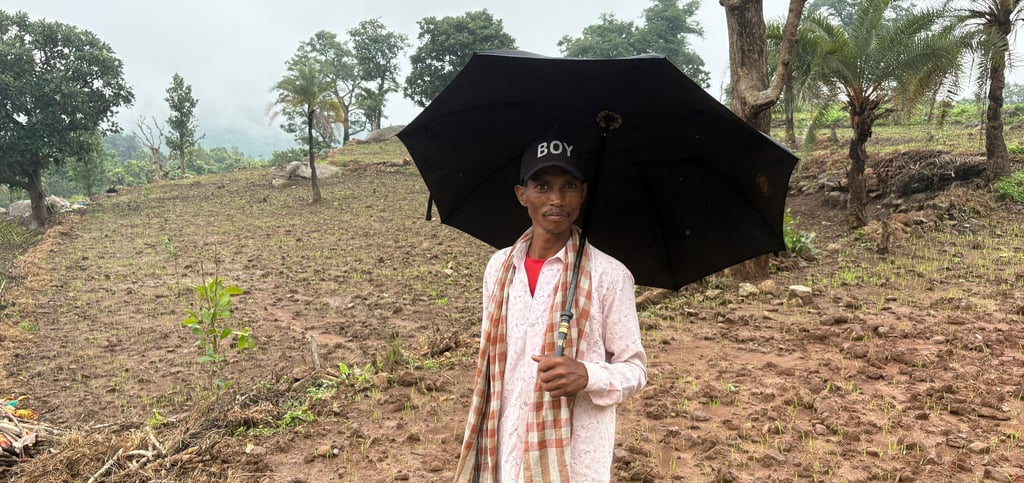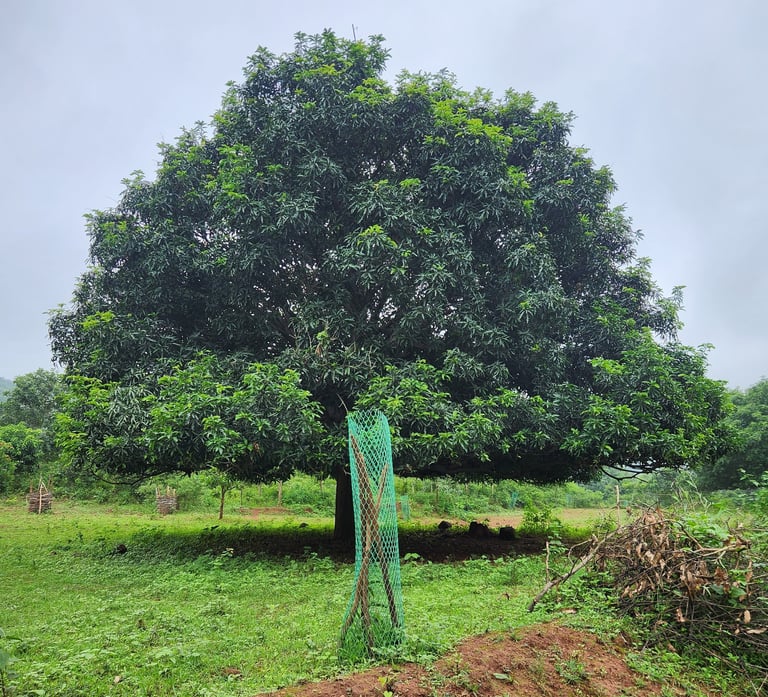Only when Nagesh was ready to jump through the hoops
STORY


Nagesh Bhoia, a visionary, is now ready to serve the environment after 30 years of caring for his family, children, and beloved wife. He shared how he relates to all humans as providers — recognizing that while nature gives us so much, we, as a community, can also give back to it. Born and raised in Lumudasing village in the Gajapati district of Odisha, Nagesh has spent much of his life trying to sustain his family of five through seasonal agriculture. With a small plot of land, limited access to improved farming techniques, and scarce resources, making ends meet was a constant challenge. He maintained his farm and worked hard, but as the years passed, the climate and land conditions worsened. For him, it felt like jumping out of the frying pan and into the fire. Declining soil health and shifting cultivation practices made farming increasingly uncertain, leading to poor yields.
He then decided to join the water security to climate resilience initiative by Gram Vikas in 2023. The programme gave Nagesh the confidence to take on the growing challenges of water and livelihoods worsened by climate change. He first got involved through the Water Security Plan, where he received his personal water passbook — a document mapping the aquifers in his area. That was a turning point for him. For the first time, he saw a real hope for change. Motivated, he took the initiative to plant 137 saplings of cashew, lemon, and mango on his 1.5 acres of land. Embracing the essence of inclusivity, he introduced intercropping to better utilise space and diversify income. From his first plantation, Nagesh realised that these trees would not only support his livelihood, but also contribute to increased tree cover, groundwater recharge, soil conservation, and biodiversity restoration — his way of giving back to nature.
Nagesh is not just pouring water, but his heart to his trees.
While Nagesh was planting not just trees, but a legacy for future generations, Gram Vikas was working rigorously to ensure that these climate resilience efforts remain sustainable for farmers like him. Gram Vikas partnered with Fair Climate Fund (FCF) as the carbon project developer and Centre for Grower-centric Eco-value Mechanisms (C-GEM) as the knowledge and accountability partner, to link the community-led plantations with verified carbon credit generation under the Voluntary carbon markets, so that the revenues from sale of carbon credits can reward farmers like Nagesh who not only plant trees but their hopes with it.
Encouraged by the early results, Nagesh's affection for trees grew—along with his plantations. In 2025, he planted 100 additional saplings on another 1.2 acres of his land. During a community meeting where the concept of carbon credits was explained, Nagesh gave his Free, Prior, and Informed Consent (FPIC) enthusiastically. Moved by the possibilities, he shared, “I will save the trees as long as my health allows.”


The present stands strong with a hopeful future.
Today, Nagesh views his plantation not just as a means of livelihood, but as a legacy—an investment in both economic security and ecological balance. He has set a goal for himself: that his trees will live on and continue to support his family even after he is gone.
